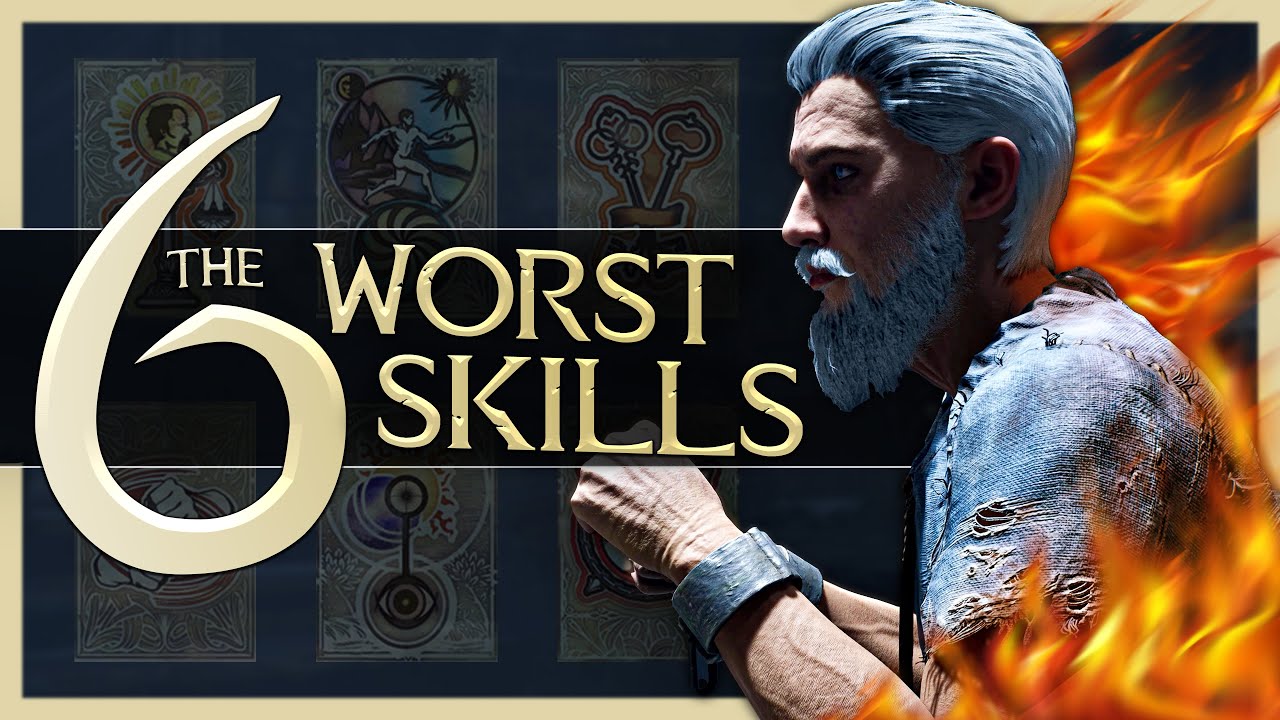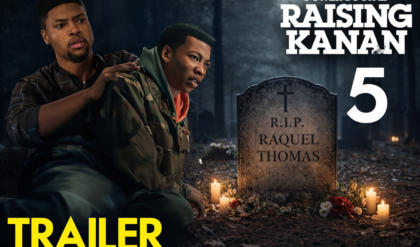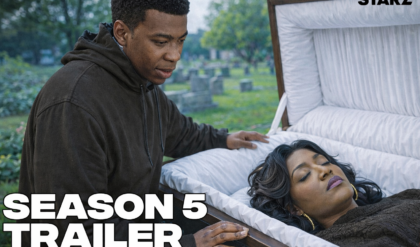The Elder Scrolls IV: Oblivion Remastered, released on April 22, 2025, for PC, PS5, and Xbox Series X|S, revitalizes Bethesda’s 2006 RPG with stunning Unreal Engine 5 visuals and refined mechanics, inviting players to explore Cyrodiil’s vast world as the Champion of Cyrodiil. With 21 skills governing combat, magic, and stealth, your character’s build shapes every encounter, from battling Daedra in Oblivion Gates to sneaking through the Dark Brotherhood’s sanctum. However, not all skills are created equal. Some offer minimal benefits, demand excessive effort, or are outclassed by alternatives, making them poor choices for your major or minor skills. Drawing from player insights and the remaster’s updated systems, here are the six worst skills in Oblivion Remastered that you should avoid—or at least approach cautiously—to ensure a smoother, more rewarding playthrough.

1. Speechcraft
Speechcraft governs persuading NPCs via the disposition minigame, where you rotate a wheel to select Admire, Boast, Joke, or Coerce actions to raise or lower their disposition. High disposition improves NPC dialogue, merchant prices, and quest outcomes, like convincing Glarthir in “Paranoia” to trust you. However, Speechcraft is a poor choice for a major skill due to its limited combat utility and slow leveling. The minigame is tedious, requiring multiple attempts per NPC, and disposition gains are temporary unless you max the skill at 100, which unlocks a 30-point disposition boost. Alternatives like Charm spells (Illusion), gold bribes, or quest rewards achieve similar results faster. For example, a 10-point Charm spell from the Mages Guild outperforms low-level Speechcraft, and gold is plentiful from quests like “The Gravefinder’s Repose.” The remaster’s updated UI makes the minigame smoother, but its time sink and lack of synergy with combat or stealth builds keep it at the bottom.
2. Mercantile
Mercantile improves your ability to haggle with merchants, increasing sell prices and lowering buy prices, and at higher levels (75+), it lets you invest in shops for better inventory. While appealing for role-playing a trader, Mercantile’s benefits are marginal and slow to materialize. Early-game haggling yields negligible gold differences—selling a steel sword for 30 gold instead of 25 isn’t worth the skill points. Gold is abundant from looting dungeons like Vilverin or selling to Thieves Guild fences, and quests like “Unfriendly Competition” provide thousands of gold. Leveling Mercantile is grindy, requiring constant buying and selling, and its perks (e.g., selling any item to any merchant at 50) are situational, as fences or specialized vendors already cover most needs. The remaster’s economy remains unbalanced, with high-value loot like Sigil Stones outpacing Mercantile’s gains. Invest in Barter potions or Charm spells instead, and save skill points for combat or stealth.
3. Hand-to-Hand
Hand-to-Hand governs unarmed combat, dealing damage based on Strength and offering a chance to knock down enemies at higher levels (50+). It’s thematic for a monk or brawler build, but its drawbacks make it one of Oblivion’s weakest combat skills. Hand-to-Hand deals significantly less damage than Blade or Blunt weapons, even at high skill levels, and lacks enchantments, unlike Chillrend’s Frost Damage or a Daedric mace’s Shock. Enemies like Dremora or Minotaurs, which scale with your level, overwhelm unarmed fighters, especially on Adept difficulty. Leveling is slow, as you must land repeated hits without weapons, and its Fatigue damage effect is negligible when enemies have high health pools. The remaster’s updated combat physics make punches feel punchier, but weapons like the Akaviri Katana (available early at Cloud Ruler Temple) or crafted poisons via Alchemy far outshine it. Unless you’re role-playing, choose Blade or Blunt for melee builds.
4. Athletics
Athletics increases your running speed and reduces Fatigue drain while sprinting or swimming, governed by Speed. At first glance, it seems useful for exploration or fleeing combat, but its benefits are minimal and easily replicated. The speed boost is incremental—a 100 Athletics skill only increases sprint speed by about 25%—and doesn’t affect horseback travel, which is faster and available early via Prior Maborel’s free horse. Fatigue management is better handled by Restore Fatigue potions, crafted with the Mortar & Pestle from the sewers, or light armor, which reduces sprint drain. Leveling Athletics is passive but slow, requiring constant sprinting, and it competes with critical skills like Sneak or Destruction for your seven major skill slots. The remaster’s open world, while gorgeous, makes fast travel or horses more practical for long distances, and items like the Ring of Khajiiti (+10 Speed) outclass Athletics’ mobility. Skip it for more impactful skills.
5. Acrobatics
Acrobatics governs jump height, fall damage reduction, and dodge rolls (at 50+), tied to Speed and Agility. It’s fun for parkour-style play, letting you leap onto rooftops in the Imperial City or dodge attacks, but its practical value is low. High jumps rarely unlock new areas, as most rooftops are accessible via stairs or glitches (e.g., paintbrush climbing, still possible in the remaster). Fall damage reduction is situational, as Feather spells or potions (Mysticism or Alchemy) negate it entirely, and dodge rolls are unreliable in fast-paced combat against enemies like vampires. Leveling requires spamming jumps, which is tedious and risks leveling too quickly, triggering tougher scaled enemies like Ogres. The remaster’s UE5 physics make jumps visually smoother, but Acrobatics’ high skill point cost and overlap with spells or items like Boots of Springheel Jak make it inefficient. Prioritize Sneak or Light Armor for agility-focused builds.
6. Armorer
Armorer governs repairing weapons and armor, extending their durability and, at 50+, allowing magical item repairs. It’s useful in theory, as damaged gear loses effectiveness, but its impact is overstated. Repair Hammers are cheap (10 gold) and abundant, found in Jauffre’s Chest or looted from bandits in Sercen. Most fights, especially early-game, don’t degrade gear significantly, and high-value items like Chillrend or Fin Gleam are durable enough to last multiple encounters. Leveling Armorer is slow, requiring frequent repairs, and its master perk (repairing beyond 100% for slight stat boosts) is minor compared to enchanting or Alchemy’s buffs. The remaster’s streamlined inventory makes repairs quicker, but gold from quests like “Fingers of the Mountain” easily covers hammer costs. Focus on combat or magic skills, as Armorer’s utility is too situational to justify as a major skill.
Why These Skills Fall Short
These six skills—Speechcraft, Mercantile, Hand-to-Hand, Athletics, Acrobatics, and Armorer—are the weakest in Oblivion Remastered due to their limited impact, high opportunity cost, and better alternatives. Speechcraft and Mercantile offer role-playing flavor but are outclassed by spells, gold, or quest rewards, with grindy leveling that delays combat readiness. Hand-to-Hand’s low damage and lack of enchantments make it impractical against scaled enemies like Dremora, while Athletics and Acrobatics’ mobility perks are redundant with horses, spells, or items like the Ring of Khajiiti. Armorer’s repair utility is negated by cheap hammers and abundant loot, diverting points from skills like Blade or Restoration. The remaster’s tweaks, like smoother UI and physics, don’t salvage these skills, as the game’s level-scaling and bug-prone quests (e.g., “Paranoia” disposition bugs) demand efficient builds.
Choosing these as major skills, which govern level-ups, risks slow progression and weak combat performance, especially on Adept difficulty where enemies deal equal damage. For example, a Speechcraft-focused build struggles in Oblivion Gates, where Dremora ignore disposition, and Hand-to-Hand falters against vampires in Gutted Mine. Community discussions highlight these skills’ inefficiencies, noting that Illusion, Alchemy, or Sneak offer similar or superior effects with broader utility. By avoiding these, you free up slots for skills like Destruction (for mages), Blade (for warriors), or Sneak (for thieves), which synergize with early items like Chillrend or Fin Gleam and scale better against Mehrunes Dagon’s forces.
Alternatives and Build Tips
To build a stronger character, prioritize skills that align with your playstyle and offer combat or utility benefits. For warriors, choose Blade, Blunt, or Block, pairing them with Heavy Armor for durability—use the Akaviri Katana from Cloud Ruler Temple to excel in fights like Kvatch. Mages should focus on Destruction, Restoration, and Mysticism, leveraging spells like Flare or Heal Minor Wounds, with the Mortar & Pestle for potion support. Thieves benefit from Sneak, Marksman, and Security, enhanced by the Skeleton Key from Nocturnal’s quest for lockpicking. Hybrid builds, like spellswords, can mix Blade with Destruction, using Chillrend’s Frost Damage and Weakness to Magic spells for synergy.
When selecting major skills, ensure they’re ones you’ll use frequently to control leveling pace, avoiding rapid enemy scaling. For minor skills, train situational ones like Alchemy or Illusion via trainers (e.g., Arvena Thelas in Anvil for Speechcraft, if needed) or practice, as they don’t affect level-ups. Grab early items like Fin Gleam for exploration or Jauffre’s Chest loot for gear, and use gold from quests like “The Gravefinder’s Repose” to buy training sessions, bypassing the need for Mercantile. Save often, as the remaster retains bugs like stuck NPCs or broken disposition minigames, and check your stats for diseases after fights to maintain performance.
Why Avoiding These Skills Matters
Skipping these skills ensures your character is combat-ready, versatile, and efficient in Oblivion Remastered’s dynamic world. The game’s level-scaling, though slightly adjusted, means enemies like Minotaurs or Xivilai grow tougher as you level, demanding strong skills to counter them. Weak skills like Hand-to-Hand or Acrobatics leave you underpowered in key fights, such as the Battle of Bruma, while Speechcraft and Mercantile divert focus from guild quests like the Mages Guild’s spellcrafting or Thieves Guild’s fences, which offer greater rewards. Athletics and Armorer, while functional, are redundant with potions, horses, or loot, wasting slots better spent on Sneak for Dark Brotherhood stealth or Restoration for Knights of the Nine durability.
The remaster’s vibrant Cyrodiil, with its radiant AI and quirky NPCs, shines when your build lets you engage fully—sneaking past guards, blasting Daedra, or charming quest-givers with spells, not tedious minigames. By avoiding these skills, you align with player strategies that prioritize efficiency, as seen in X posts praising focused builds with Blade or Illusion. This approach also mitigates the remaster’s bugs, like Speechcraft minigame freezes or Armorer repair glitches, letting you focus on Oblivion’s strengths: exploration, combat, and storytelling.
Conclusion
The six worst skills in Oblivion Remastered—Speechcraft, Mercantile, Hand-to-Hand, Athletics, Acrobatics, and Armorer—are traps that can hinder your Cyrodiil adventure. Their limited utility, slow leveling, and overlap with spells, items, or gold make them poor choices for major skills, diverting focus from combat-ready options like Destruction, Sneak, or Blade. The remaster’s polished visuals and tweaked mechanics can’t salvage these skills’ inefficiencies, especially in a world where level-scaled enemies and bugs demand optimization. By prioritizing stronger skills and leveraging early items like Chillrend or the Skeleton Key, you’ll conquer Oblivion Gates, unravel Tamriel’s mysteries, and enjoy Oblivion’s timeless charm. So, plan your build, save often, and dive into Cyrodiil—you’ll see why players are buzzing about smart skill choices in 2025.





